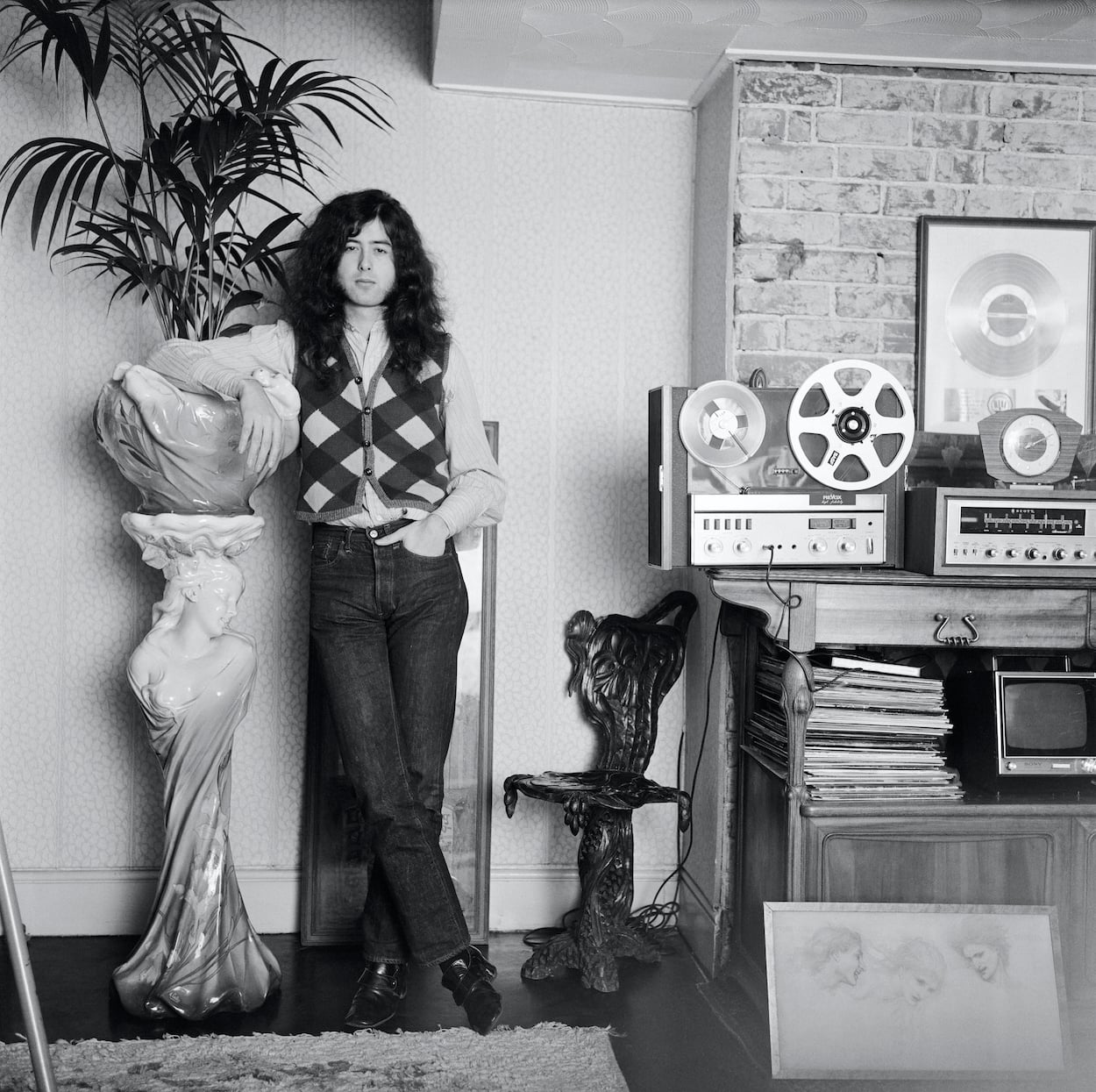
Jimmy Page’s Skill in 1 Area Helped Him Lie to the Record Company When He Made Led Zeppelin’s ‘Coda’
Even at the dawn of the punk era, Jimmy Page and Led Zeppelin were still one of the biggest bands on the planet. The band received the largest advance ever by Atlantic, and the band rewarded the label with a string of chart-topping albums. Tragedy struck in 1980 when drummer John Bonham died. Led Zeppelin couldn’t continue without him, but they still owed the label an album. Page’s skill as a producer and engineer helped him successfully get away with a white lie to the label as he stitched together Led Zeppelin’s final album as a quartet, Coda.

Jimmy Page and Led Zeppelin disbanded rather than continue with a new drummer when John Bonham died
The Beatles cycled through a few drummers before adding Ringo Starr, and The Rolling Stones have added a few new members so they can keep, um, rolling, but Led Zeppelin never changed the lineup. It was always Page, singer Robert Plant, multi-instrumentalist John Paul Jones, and drummer John Bonham.
Bonham died suddenly in 1980 on the eve of a tour, and Led Zeppelin decided to split up rather than replace him with a new timekeeper. Bonham was more than just a timekeeper for Led Zeppelin. His powerful technique gave Led Zeppelin a distinctive sound, but he was so in tune with the rest of the band and such an instrumental part of songs’ development that Page said Zeppelin couldn’t possibly replace him.
When Bonham died, the band still owed Atlantic another studio album, and the studio wouldn’t take no for an answer. Page’s producing talents helped him get away with a lie when he delivered Coda to the label in 1982.
Jimmy Page’s producing talents helped him get away with a lie while making Led Zeppelin’s ‘Coda’
Before forming Led Zeppelin, before accepting an invitation to join the Yardbirds (after scoring an iconic guitar for turning down the job), Jimmy Page cut his teeth as a session musician andl made it worth his while.
“Being a studio musician, I took it on board as almost an apprenticeship because I wanted to learn from the recording engineers for certain techniques,” Page said during a tour of the Fender guitar factory (via YouTube). “I really wanted to learn how things were done.”
The guitarist also learned how to read and arrange music as well as produce during the end of his session days.
Those talents came in handy when Page had to put together Coda. Without a drummer, he dove into the archives to find outtakes that never made it onto Led Zeppelin’s earlier albums. Still, Page didn’t have enough studio outtakes for a full “studio” album. So he relied on his engineering and producing experience and turned a live version of “We’re Gonna Groove” into a track that sounded like a studio cut.
“The earliest pressings of Coda included the information that “We’re Gonna Groove” was recorded at London’s Morgan Studios on June 25, 1969 … In reality, as was noted on subsequent releases of the album, the song was culled from a Jan. 9, 1970, live performance at London’s Royal Albert Hall,” Centennial Media’s Legends of Music Spotlight: Led Zeppelin notes. “Jimmy Page didn’t make a mistake — this was his sleight of hand. The contract with Atlantic called for a studio album. Lacking enough material for one, the guitarist cleverly doctored the live performance to make it sound like it was done at Morgan.”
Coda’s version of “We’re Gonna Groove” isn’t a completely revamped live track. Page added overdubbed guitar onto his solo, per the Legend of Music magazine. Still, Page’s skill as a producer and engineer helped him lie to Atlantic, claim “We’re Gonna Groove” was a studio outtake, add it to Coda’s track listing.
Where does ‘Coda’ rank among Led Zeppelin albums?
Coda isn’t like other Led Zeppelin albums. Page, Plant, Bonham, and Jones didn’t jam on the songs, work out the kinks on the road, and then record them in the studio. Still, the record is an official part of the Zeppelin discography, but it has mixed reviews.
If you ask former Nirvana drummer and Foo Fighters frontman Dave Grohl, Coda is his favorite Led Zeppelin album. He learned to play the drums by copying the drum solo “Bonzo’s Montreux,” so Zep’s swan song holds a special place in his heart. Songs like “I Can’t Quit You Babe” and “Wearing and Tearing” stand up well next to the band’s hits from earlier years.
Showbiz Cheat Sheet once had Coda next to the bottom of the list when ranking Led Zeppelin’s albums. Since it’s a collection of outtakes from throughout their career, it doesn’t have the same time-and-place cohesion as earlier works.
Love it or hate it, Coda has an interesting story about Jimmy Page getting away with a lie as he put the album together.
For more on the entertainment world and exclusive interviews, subscribe to Showbiz Cheat Sheet’s YouTube channel.


